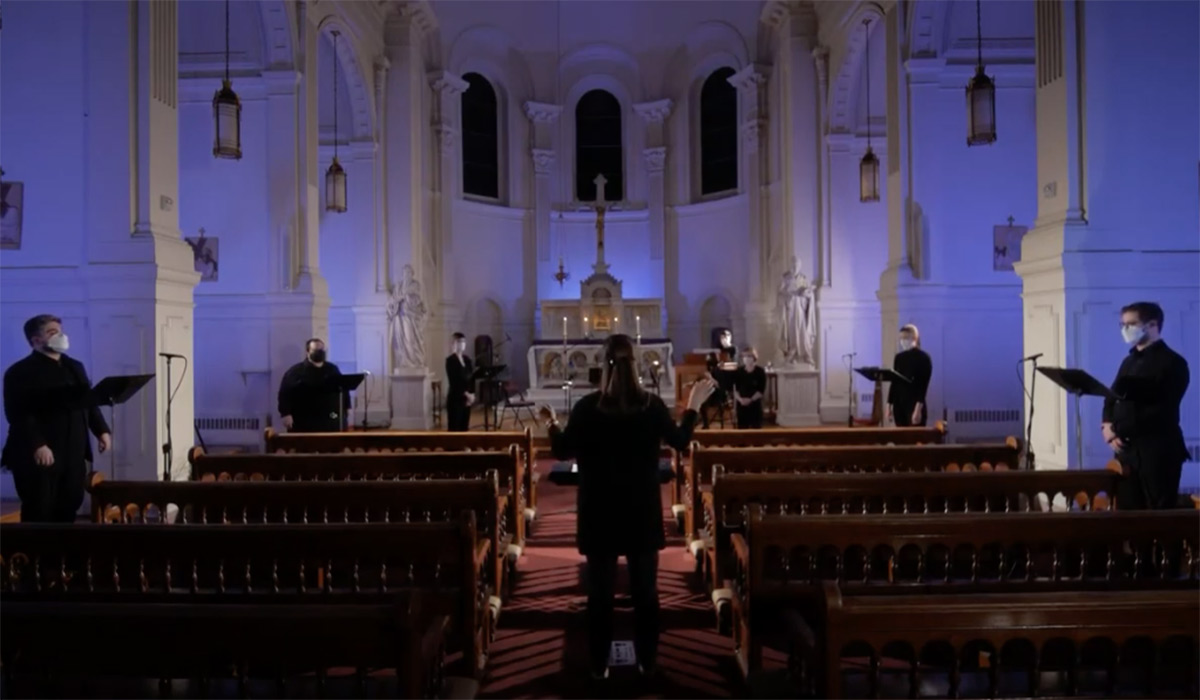

While many things have started to return to some form of “normal” this spring, music performances, especially vocal programs, have continued to present large risks to performers and audiences. The Catholic University Repertory Chorus — housed within the Benjamin T. Rome School of Music, Drama, and Art — overcame the obstacles presented by the pandemic to present a Spring Series of sacred music concerts.
“I am very proud of their work; it's really quite exceptional,” says Jaqueline Leary-Warsaw, dean of the Rome School.
The concerts are conducted by graduate students in the Master of Music in Choral Conducting program. The Repertory Chorus is a professional ensemble that serves as a training choir for students in the graduate choral conducting program. Timothy McDonnell, director of choral studies and head of sacred music, notes that performances with this ensemble are “an essential element on our students' path to graduation.” Because of their essential nature, he worked with professional partners who perform in the chorus to create a safe environment for the master’s students.
Steps taken to minimize the risks presented by COVID-19 included requiring N95 masks for singers, reducing the size of the ensemble to one singer per vocal part, and spacing the performers throughout the performance space. Although atypical, singers were placed in front of instrumentalists to prevent the possibility of respiratory droplets being projected on the musicians by the vocalists. This configuration had to be carefully managed to ensure that all performers — even instrumentalists who were seated — could have a clear sight line to the conductor.
“A critical component of conducting is the reaction of live musicians to the gestures of the conductor,” McDonnell says. “This could not be replicated in a fully digital environment due to data lag and latency. From the beginning of the COVID crisis, we recognized that ceasing the program during COVID was a possibility because of risk factors. But, we learned that although risk elimination is unattainable, it is possible to minimize the risk of infection while pursuing artistic goals.”
Another major difference to performances in the pandemic environment is the lack of an in-person audience. In order to create an appropriate environment for patrons to observe the performances, the Rome School worked with a professional sound engineer and videographer to produce their livestreams.
“The effective use of light in these productions lent a chiaroscuro frame to the sacred space of Caldwell Chapel for these programs, which were predominantly performances of sacred music,” McDonnell says. “It was important for us to communicate both the beauty of choral sound, but also atmosphere in these livestream performances.”
“As program director, I'm very proud of our students and the professionals with whom we worked to create these virtual concerts,” McDonnell says. “In this very difficult time, I think we've all learned that art is essential work if we wish to remain fully human, and that given the will and collaborative spirit, we can overcome our circumstances to pursue beauty.”